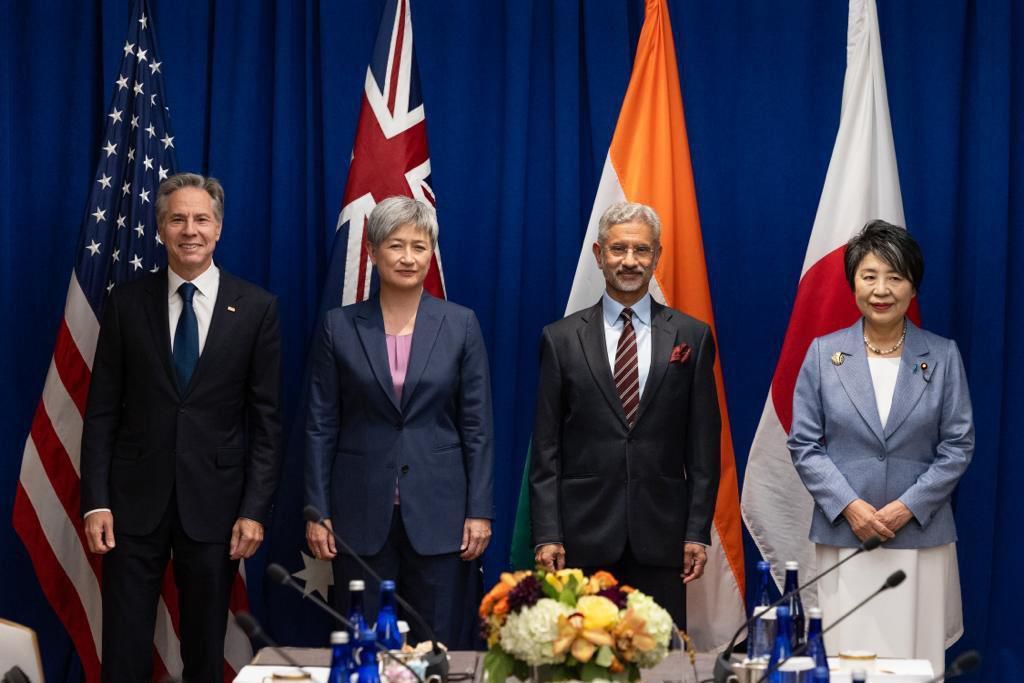Quad foreign ministers to meet amid China threat
Ajay Banerjee
New Delhi, July 23
External Affairs Minister S Jaishankar will attend two separate high-level meetings in Laos and Japan during this week. He will be in Tokyo for the Quad Foreign Ministers’ meeting scheduled for July 29.
En route, he will be at Laos (July 25 to 27) to participate in the Foreign Ministers’ meetings under the ASEAN framework in the format of ASEAN-India, East Asia Summit and the ASEAN Regional Forum.
Foreign Ministers of ‘Quad’ countries are to face multiple agendas, including tackling an increasingly militarised South China Sea; coordinating on maritime domain awareness; countering terrorism and enhancing telecommunication resiliency through undersea cables.
Jaishankar will join his counterparts Yoko Kamikawa, Antony Blinken and Penny Wong from Japan, US and Australia, respectively. The four countries form the ‘Quad’ grouping. It will be the first Quad foreign ministerial talks since September last year. The meet will be in run-up to the Quad leaders’ summit to be hosted by India.
Jaishankar to visit Laos, Japan
On the agenda
- Tackling an increasingly militarised South China Sea
- Coordinating on maritime domain awareness & countering terror
- Enhancing telecommunication resiliency through undersea cables
The statement after September meet had called for addressing ‘challenges’ in the South China Sea and East China Sea. It remains to be seen if the Quad foreign ministers take a tougher stance in Tokyo. A series of confrontations between Chinese and Philippine vessels have “vitiated” the atmosphere.
Senior officials of the Quad had met in the 1st of July and discussed new ideas to further the Quad’s collaboration. This included delivering public goods in the Indo-Pacific region in areas, such as health security, digital public infrastructure, Humanitarian Assistance and Disaster Relief (HADR). The meet also suggested climate resilience, enhancing maritime domain awareness and countering terrorism. At Tokyo, the Quad will speak for having a free, open, inclusive and resilient Indo-Pacific.
Beijing has been adding military infrastructure in disputed areas of South China Sea, where the Philippines, Taiwan, Malaysia, Vietnam and Brunei have overlapping claims in the South China Sea. The United Nations Convention on the Law of the Sea (UNCLOS) has decided the maritime limit. China has refused to accept the verdict on demarcation of maritime boundaries.
In March this year, India had expressed support for the Philippines in upholding its sovereignty. External Affairs Minister S Jaishankar, who was in Manila, the capital of Philippines, had said: “I take this opportunity to firmly reiterate India’s support to the Philippines for upholding its national sovereignty”. India stood by staunch adherence to a rules-based order, he had said.









